solar roadway lighting | Quenenglighting Expert Guide
Mastering Solar Roadway Lighting Procurement: Your Guide to Smarter Re-purchasing
As municipalities, commercial entities, and infrastructure developers increasingly adopt sustainable solutions, solar roadway lighting stands out as a powerful alternative to traditional grid-tied systems. For those already utilizing these lights, or planning significant expansion, understanding the nuances of re-purchasing and maintenance is crucial. This article delves into the top questions professionals in the solar lighting industry ask when considering their next procurement cycle, offering insights backed by current industry data.
1. What is the Expected Lifespan of Key Solar Roadway Lighting Components?
Understanding component longevity is vital for planning re-purchases and calculating total cost of ownership (TCO). Here's a breakdown of typical lifespans:
- LED Light Source: Modern LED chips and drivers are exceptionally durable, offering an impressive lifespan of 50,000 to 100,000 hours. In a typical night-time operation of 10-12 hours, this translates to 10-20+ years of operational life before significant lumen depreciation (L70, meaning 70% of initial brightness).
- LiFePO4 (Lithium Iron Phosphate) Battery: This is often the first component requiring replacement. LiFePO4 batteries are preferred for their safety, stability, and cycle life. They typically offer 2,000 to 4,000 charge/discharge cycles. Depending on the depth of discharge and ambient temperatures, this usually translates to an 8 to 12-year lifespan. Older lead-acid batteries have a much shorter lifespan of 3-5 years.
- Solar Panel (Photovoltaic Module): High-quality monocrystalline solar panels are designed for long-term outdoor exposure. They typically come with performance warranties guaranteeing 80% to 90% of their nominal power output after 20 to 25 years. Annual degradation rates are usually around 0.5% to 0.7%.
- Charge Controller & Driver: These electronic components generally have a lifespan of 5 to 10 years, depending on the quality of manufacturing and environmental factors.
2. How Do I Accurately Size Solar Roadway Lighting for Specific Geographical Locations and Requirements?
Accurate sizing ensures optimal performance and reliability. Key factors include:
- Geographical Peak Sun Hours (PSH): This is the most critical solar input variable. PSH represents the equivalent hours per day when solar irradiance averages 1,000 watts per square meter. Data can be obtained from meteorological services or solar irradiance maps (e.g., PVWatts Calculator for the USA, global solar atlases).
- Required Days of Autonomy: This specifies how many consecutive cloudy days the system must operate without sunlight. Standard industry practice recommends 3 to 5 days of autonomy to ensure consistent lighting during prolonged periods of low sun.
- Lighting Requirements (Lumens/Lux): Roadway lighting standards vary by road type. For example, local residential streets might require 5-10 lux, while main arterial roads could demand 15-25 lux on the pavement. Lumens per fixture are calculated based on the area to be illuminated, pole height, and spacing.
- System Components:
- Load Wattage: The total power consumption of the LED fixture (e.g., 30W, 60W).
- Battery Capacity (Ah): Calculated as
(Load Wattage * Hours of Operation * Days of Autonomy) / (Battery Voltage * Depth of Discharge (DoD) * Inverter Efficiency). Typical DoD for LiFePO4 is 80-90%. - Solar Panel Wattage: Determined by
(Battery Capacity Ah * Battery Voltage * Days of Autonomy) / (PSH * Panel Efficiency * System Losses). System losses (e.g., temperature, dust, wiring) are typically 15-25%. - MPPT Controller: Maximum Power Point Tracking (MPPT) controllers are crucial, offering up to 15-30% more efficiency in power harvesting compared to older PWM (Pulse Width Modulation) controllers, especially in varying light conditions.
3. What Are the Latest Advancements in Solar Panel and Battery Technology for Improved Efficiency and Reliability?
The solar lighting industry is constantly evolving:
- High-Efficiency Solar Panels: Monocrystalline silicon panels now dominate, with commercial module efficiencies commonly ranging from 20% to 23%, allowing for more compact panel sizes and higher power output in limited space.
- Advanced Battery Chemistry: As mentioned, LiFePO4 (LFP) batteries are the standard due to their superior safety (less prone to thermal runaway), longer cycle life, wider operating temperature range (-20°C to 60°C), and consistent discharge voltage compared to NMC or lead-acid chemistries.
- Intelligent Control Systems (IoT & AI): Modern solar controllers integrate with IoT platforms, enabling remote monitoring, diagnostics, and management of individual lights or entire networks. Features include adaptive dimming based on motion detection (e.g., dimming to 30% when no activity, boosting to 100% upon detection), scheduled dimming, and real-time performance analytics. NEMA sockets on fixtures allow for easy integration of smart city sensors.
- Integrated Designs: Many new designs integrate the solar panel, battery, and LED fixture into a single, compact unit, simplifying installation and aesthetics.
4. What Are the Key Maintenance Considerations and Best Practices to Maximize System Longevity and Performance?
While solar lighting requires less maintenance than grid-tied systems, some best practices maximize its lifespan:
- Solar Panel Cleaning: Regularly clean the surface of the solar panel to remove dust, dirt, bird droppings, or snow. Accumulated debris can reduce efficiency by 5-20%. Frequency depends on the environment (e.g., quarterly in dusty areas, annually elsewhere).
- Visual Inspection: Periodically check all wiring, connections, and hardware for corrosion, damage, or looseness. Ensure the pole is structurally sound and straight.
- Battery Health Monitoring: For smart systems, monitor battery voltage and charge cycles remotely. For older or non-smart systems, a professional might perform an occasional physical check, although LiFePO4 batteries generally require less hands-on maintenance than lead-acid.
- LED & Lens Inspection: Check for any physical damage to the LED housing or lens that might impede light output.
- Firmware Updates: For smart lighting systems, ensure controller firmware is up-to-date to benefit from new features and bug fixes.
5. How Do I Assess the Total Cost of Ownership (TCO) for Solar Roadway Lighting?
TCO provides a comprehensive financial perspective beyond initial purchase price:
- Initial Capital Cost: Solar roadway lights typically have a higher upfront cost per unit (ranging from $500 to $3000+ depending on power, features, and brand) compared to a basic grid-tied fixture.
- Installation Cost: This is where solar lights shine. Installation costs are significantly lower as there's no trenching, cabling, or connection to the electrical grid required. This can save thousands of dollars per pole in comparison to grid-tied systems, especially in remote or challenging terrains.
- Operating Cost: Near zero. There are no electricity bills from the grid for solar-powered lights, leading to substantial long-term savings.
- Maintenance Cost: Primarily involves periodic cleaning and, most significantly, battery replacement every 8-12 years. This cost needs to be factored into the long-term budget. Compared to grid-tied lights, which might incur high energy costs over their lifespan, solar lights often have a lower overall TCO.
- Return on Investment (ROI): Due to zero electricity bills and lower installation costs, the ROI for solar roadway lighting is often favorable, with typical payback periods ranging from 3 to 7 years, depending on electricity rates, installation complexity, and local incentives.
Quenenglighting Advantages
When considering your next purchase of solar roadway lighting, Quenenglighting stands out by offering a holistic solution focused on performance, durability, and cost-effectiveness. Our commitment includes:
- High-Efficiency Components: Utilizing High Quality monocrystalline solar panels (22%+ efficiency) and long-life LiFePO4 batteries for maximum energy harvesting and storage.
- Intelligent Control Systems: Advanced MPPT controllers with smart IoT capabilities, offering remote monitoring, adaptive dimming, and motion sensing for optimized energy use and operational insights.
- Robust Design & Durability: Engineered to withstand harsh environmental conditions, ensuring extended product lifespan and reduced maintenance.
- Comprehensive Support & Customization: Providing expert sizing guidance, technical support, and customizable solutions to meet specific project requirements and geographical challenges.
- Focus on TCO: Our products are designed to deliver a superior total cost of ownership, combining low installation expenses, zero electricity bills, and minimal maintenance for maximum long-term savings and ROI.
Choosing Quenenglighting means investing in reliable, sustainable, and economically sound roadway lighting infrastructure.

Have more questions about our products or services?
The latest hot news you might like

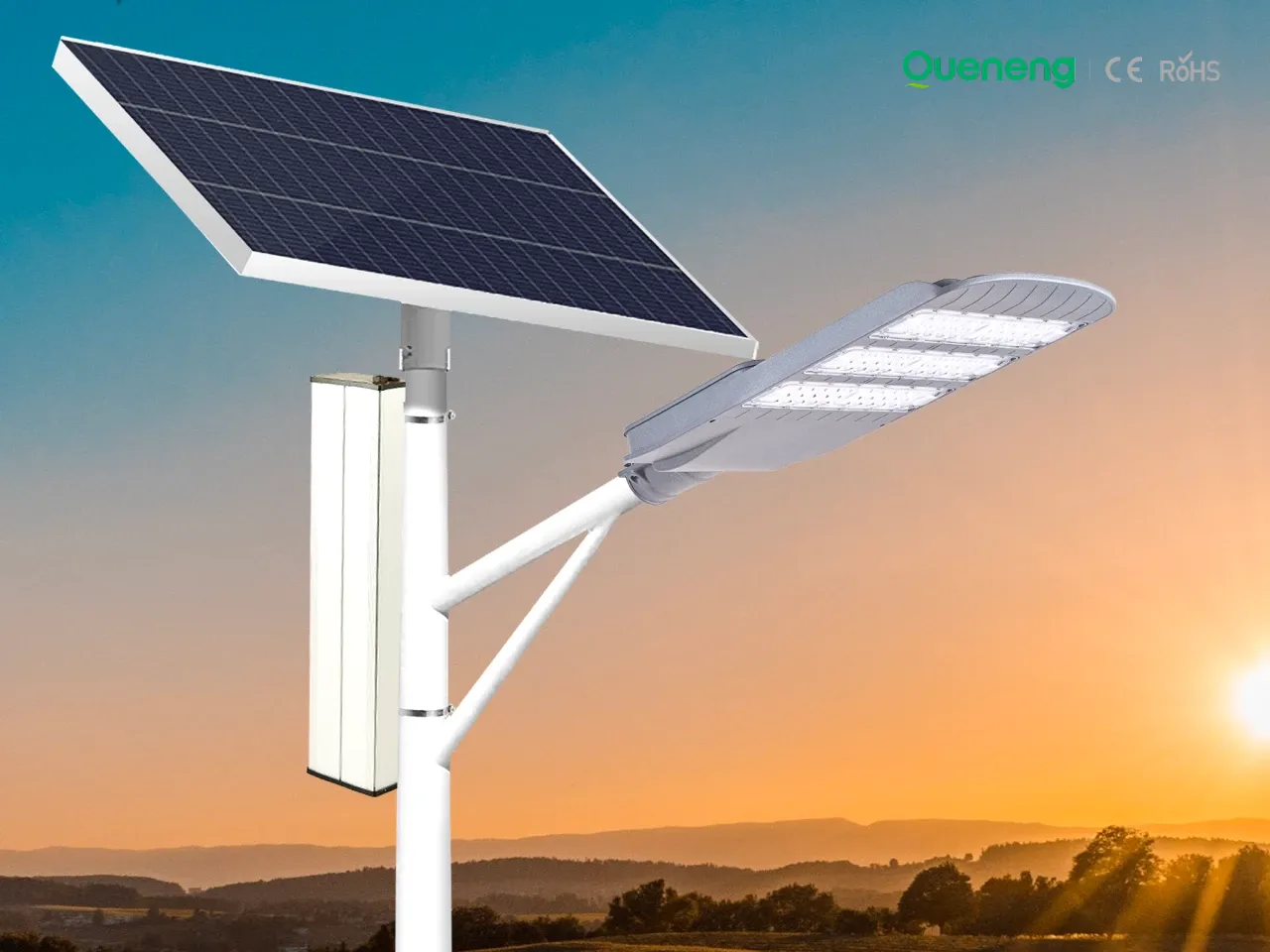

A comprehensive 2026 guide to solar street light pricing. Covers commercial installation costs, LiFePO₄ battery trends, smart IoT features, and a detailed ROI comparison against traditional grid lighting.

A comprehensive 2026 outlook on integrated solar street lights, featuring performance benchmarks like bifacial panels, LiFePO₄ batteries, and Smart City IoT integration for maximum ROI.
FAQ
Battery Types and Applications
Why do fuel cells have great development potential?
1) High efficiency. Because the chemical energy of the fuel is directly converted into electrical energy without thermal energy conversion in the middle, the conversion efficiency is not limited by the thermodynamic Carnot cycle; because there is no conversion of mechanical energy, mechanical transmission losses can be avoided, and the conversion efficiency does not depend on the size of the power generation. And change, so the fuel cell has higher conversion efficiency;
2) Low noise and low pollution. In the process of converting chemical energy into electrical energy, the fuel cell has no mechanical moving parts, but the control system has some small moving parts, so it is low-noise. In addition, fuel cells are low-pollution energy sources. Taking phosphoric acid fuel cells as an example, the sulfur oxides and nitrogen compounds they emit are two orders of magnitude lower than the U.S. regulations;
3) Strong adaptability. Fuel cells can use various hydrogen-containing fuels, such as methane, methanol, ethanol, biogas, petroleum gas, natural gas and synthetic gas, etc. The oxidant is inexhaustible air. Fuel cells can be made into standard components with a certain power (such as 40 kilowatts), assembled into different powers and types according to the user's needs, and installed in the most convenient place for the user. If necessary, it can also be installed into a large power station and used in connection with the conventional power supply system, which will help regulate the power load;
4) Short construction period and easy maintenance. After the industrial production of fuel cells is established, various standard components of power generation devices can be continuously produced in factories. It is easy to transport and can be assembled on-site at the power station. Some people estimate that the maintenance required for a 40-kilowatt phosphoric acid fuel cell is only 25% of that of a diesel generator of the same power.
Because fuel cells have so many advantages, both the United States and Japan attach great importance to its development.
What batteries will dominate the battery market?
Schools and Educational Institutions
Do solar lights work year-round, even during winter?
Yes, solar lights can work year-round, even in winter. However, in areas with heavy snow, it’s important to ensure the solar panels are clear of snow for optimal performance.
What kind of maintenance is needed for solar lights?
The main maintenance required is cleaning the solar panels periodically to ensure they remain free of dust or debris, and occasionally checking the functionality of the battery and light.
Public Gardens and Landscape Lighting
Are solar lights safe for use in public spaces?
Yes, solar lights are safe for public spaces. They use low-voltage LED lights that do not pose any electrical hazards. Additionally, our lights are designed with weather-resistant and durable materials to withstand outdoor conditions, making them reliable and safe for public use.
Solar Street Light Luxian
What are the primary benefits of using Luxian solar street lights for outdoor lighting?
Luxian solar street lights offer several key benefits, including energy savings, environmental friendliness, and independence from the electrical grid. They use solar energy to power LED lights, reducing electricity costs while providing reliable, high-quality lighting for outdoor spaces. The durable construction and low maintenance needs make them ideal for long-term use in various outdoor environments.

The Solar Streetlights of Luhao for Municipalities are designed to deliver reliable, energy-efficient, and cost-effective public lighting solutions. Equipped with advanced LED technology, durable lithium batteries, and high-efficiency solar panels, these streetlights provide consistent illumination for roads, parks, residential areas, and government projects.
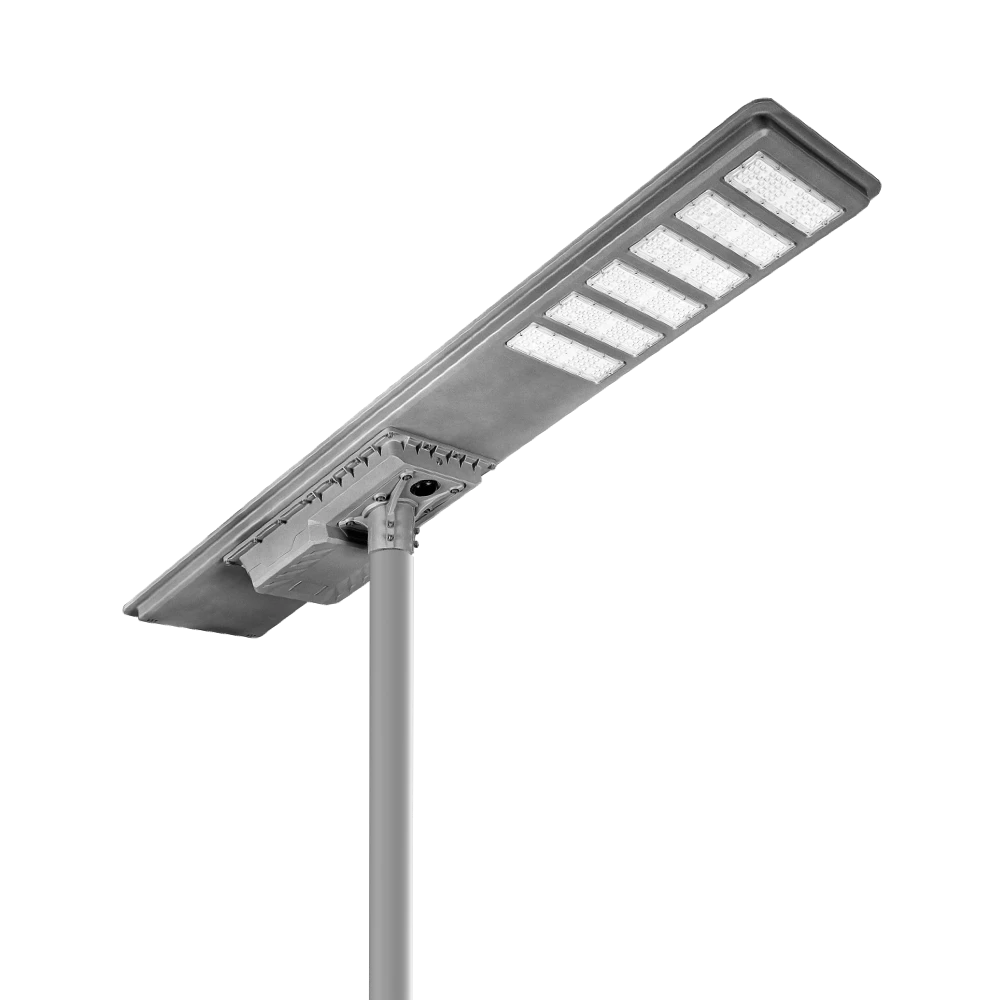
Queneng's Luqiu Innovative Solar Street Light offers energy-saving, durable outdoor lighting. This solar power street light provides a reliable and eco-friendly solution for illuminating your streets and pathways.
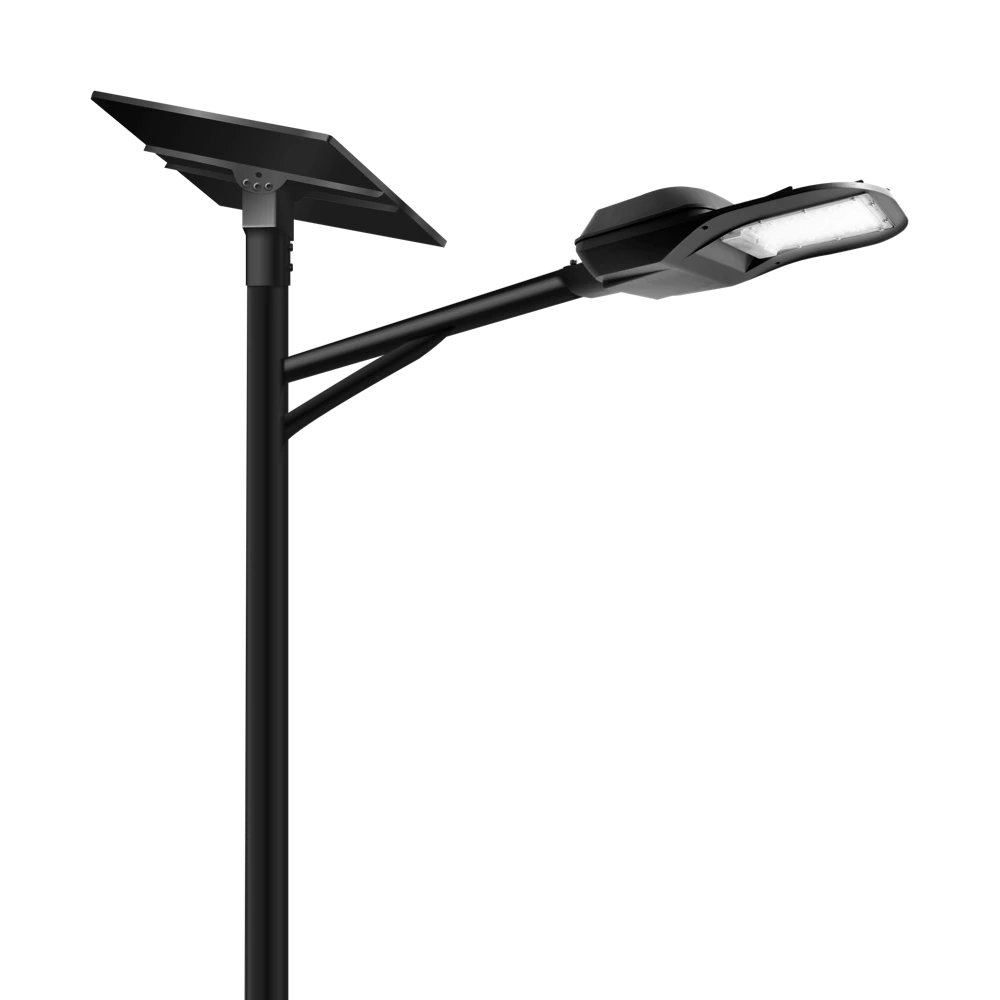

Lubai is an integrated solar street light designed for stable, long‑term outdoor lighting in off‑grid and weak‑grid areas. Combining a high‑efficiency solar panel, LiFePO₄ battery, and intelligent motion sensing, Lubai delivers reliable illumination with low maintenance and fast installation.
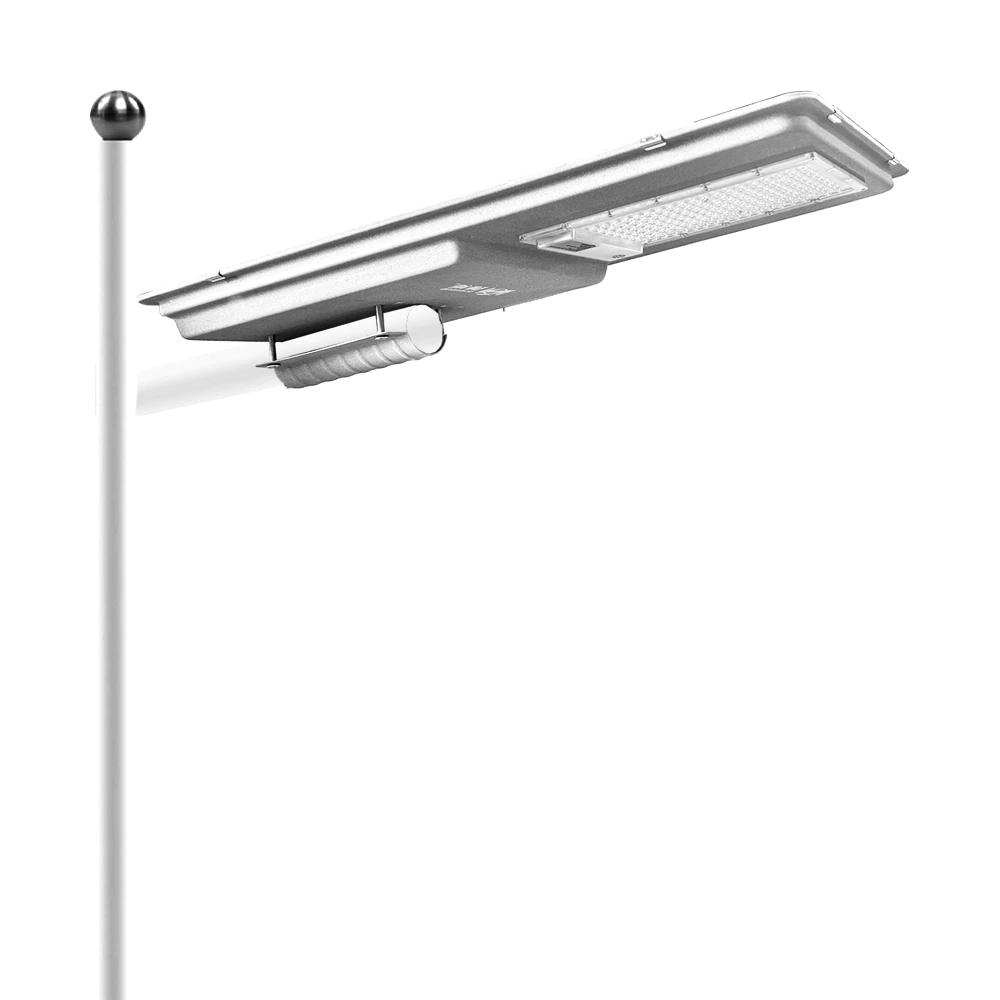
Queneng's Lufa high-efficiency solar LED street lights illuminate urban and commercial spaces brilliantly. These commercial solar LED street lights offer superior energy savings and reliable performance, making them an ideal sustainable lighting solution.
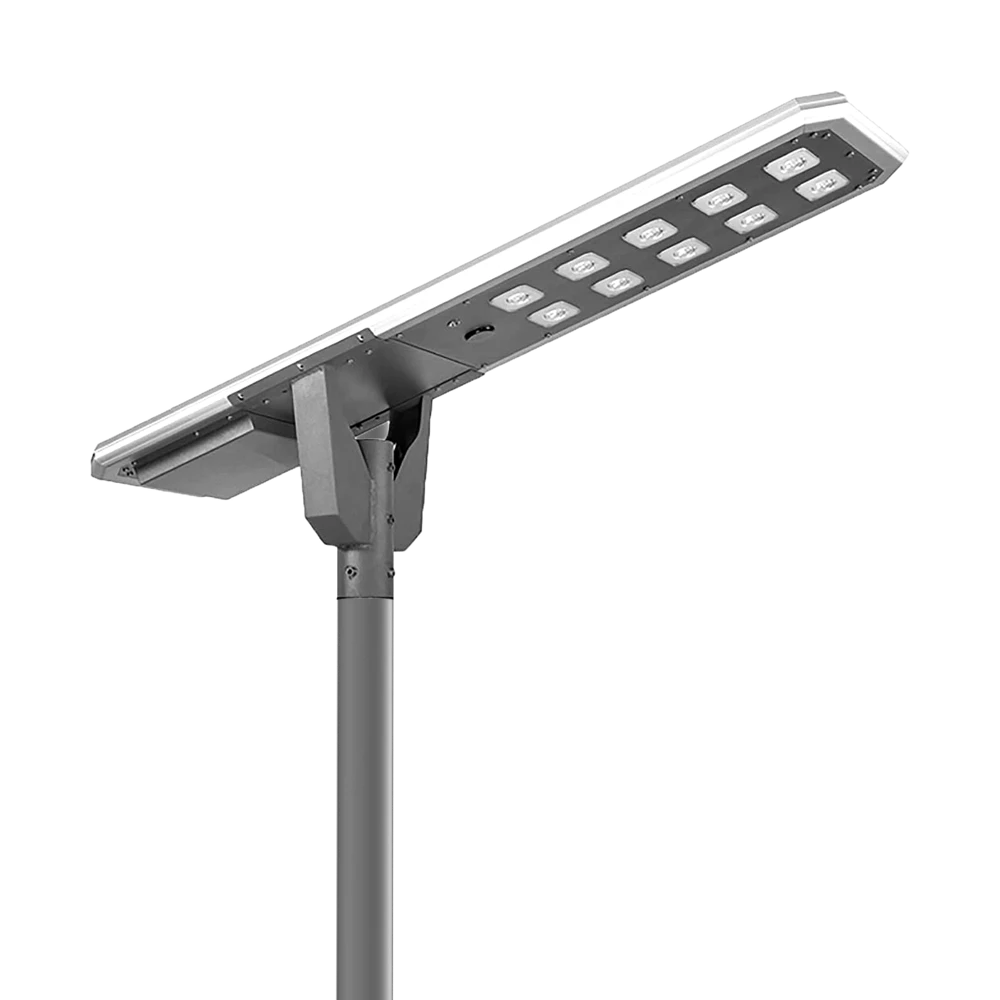
Illuminate your outdoor spaces with the Solar Street Light, a cutting-edge solution combining advanced solar technology and energy-saving LED lighting.
If you would like more information about Queneng solar lighting solutions, please send us a message by filling out the form below. Our professional team will get back to you within 24 hours!
Rest assured that your privacy is important to us, and all information provided will be handled with the utmost confidentiality.
Schedule a Meeting

Book a date and time that is convenient for you and conduct the session in advance.
Have more questions about our products or services?





















